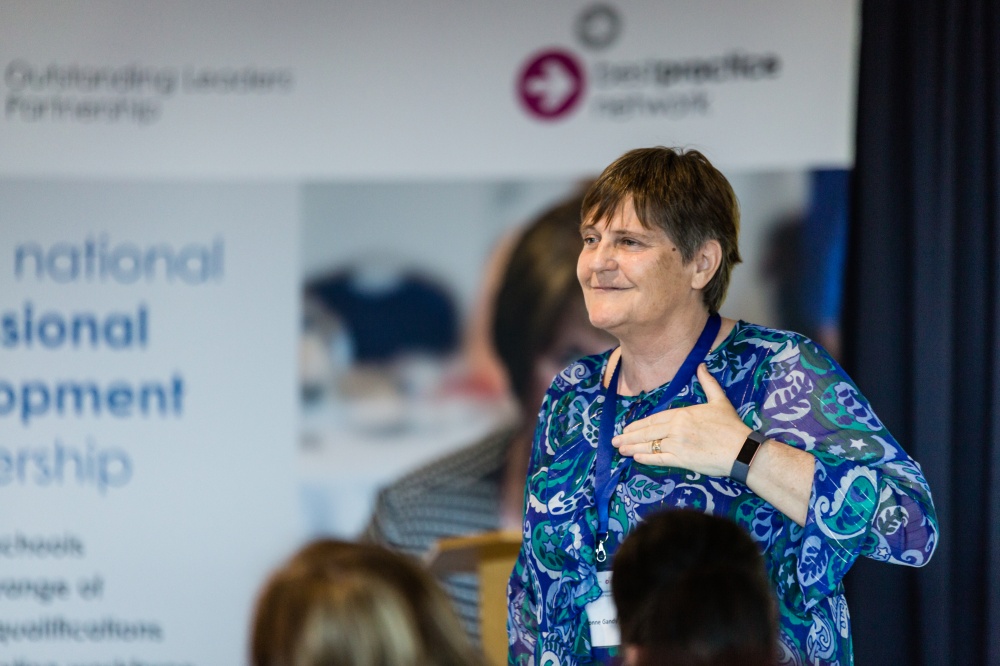Teacher wellbeing: With you, for you, about you...

Teacher wellbeing: With you, for you, about you...
Professional development is the thread running through one school’s innovative retention and wellbeing strategy. Yvonne Gandy finds out more
A rapid journey of improvement took its toll on John Rowlands – and helped to change his approach to staff wellbeing and development.
Now executive principal at Manchester Communication Academy, an 11 to 16 school with more than 1,100 pupils serving a disadvantaged community in the north of the city, Mr Rowlands was vice-principal at the time and part of the team tasked with turning the school around quickly.
He explained: “In 2015 our results were below our expectation. Then we made rapid progress that improved our performance so that we were in the top 20 per cent for progress. The effort that this required of all of us was not sustainable and I wanted to be in this for the long term. It was important that we took a different approach to staff development and retention.”
The school has strived to create a climate that promotes the wellbeing of its 250 staff, and professional development is an intrinsic part of this.
“Our approach has been to ask staff what they wanted in terms of support for their wellbeing and development and then deliver it,” Mr Rowlands continued. “We asked them what we could do to create a culture that is supportive to them. We wanted staff to plan for their families as hard as they plan for their students. And we needed to look hard at how we achieved that balance.”
Mr Rowlands’ own professional development experiences were a major influence on the strategy. It was a think-piece by the education leadership consultant and writer John West-Burnham on the moral purpose of leadership (read as part of his National Professional Qualification for Headship) that emphasised the importance of putting the needs of staff on a par with those of pupils and their families.
As such, a key plank of the recruitment and retention strategy at Manchester Communication Academy was the evolution of the performance management system into professional development, masterminded by vice-principal and director of research Susie Fraser.
“We wanted to avoid our staff becoming inhibited by performance management,” Mr Rowlands said. “We should respect that everyone will perform to the best of their abilities and it is our job to give them the development they need. Our school motto is ‘with you, for you, about you’ – that applies to our staff as much as it does to our students.”
Every staff member gets weekly staff training. Last year the strategic focus of these sessions was on developing literacy and reading and this year it will be on metacognition strategies. The aim, says Mr Rowlands, is to focus on areas which they feel will have the most impact for the children.
There are also weekly teaching and learning briefings focused on research and strategies for great learning, “disciplined inquiry” action research projects, and weekly departmental development time, which is protected and focused on subject-specific development including collaborative planning, curriculum reviews and exam board training.
NQTs get extra support in the form of subject-specific mentoring and weekly training, while middle leaders take part in regular meetings where they build middle leadership skills and practice and get senior leadership team support.
Focused mentoring is available to any staff member who would like to develop their expertise in a particular area, along with a personal improvement programme, external training and further engagement in research and coaching.
Reducing the burden of marking and planning is also being tackled, with time for staff to mark together and co-plan built into the school day. Whole-class approaches to marking are also being trialled.
Grand strategies and processes are crucial, but it is the small gestures that can have just as much impact, according to Mr Rowlands: “On the first day back at school at the start of term my message to the staff is that they are all dads, mums, grans, carers, partners and they have been in those roles full-time for the previous six weeks. But these roles do not go on hold when school starts – they are not going to be zombies for the rest of the term.
“If they want to go to a nativity play for an hour then they should be able to. I wouldn’t want to work at a school which made that sort of balance impossible.”
The school has a wellbeing agenda to make this happen. All staff get a flexi-day each year and there are flexible working patterns so if a member of staff needs to drop their children off at school before they head into work, this is made possible.
Staff can also take after-school cooking and gym classes, and if they need confidential advice and support on personal matters such as finances or relationship problems, they can call a free, 24-hour helpline.
“We look at ourselves as a 21st century employer and we try to create an environment in which staff can flourish,” Mr Rowlands added.
“We have also introduced sabbaticals for staff. I can’t stand in the way of a young teacher – a potential future leader – who wants to take a career break in Tibet if it means that they are more likely to come back to us.”
Yvonne Gandy is programme director of the National Professional Qualifications at Best Practice Network, which supports Outstanding Leaders Partnership to deliver the four National Professional Qualifications for school leaders.


